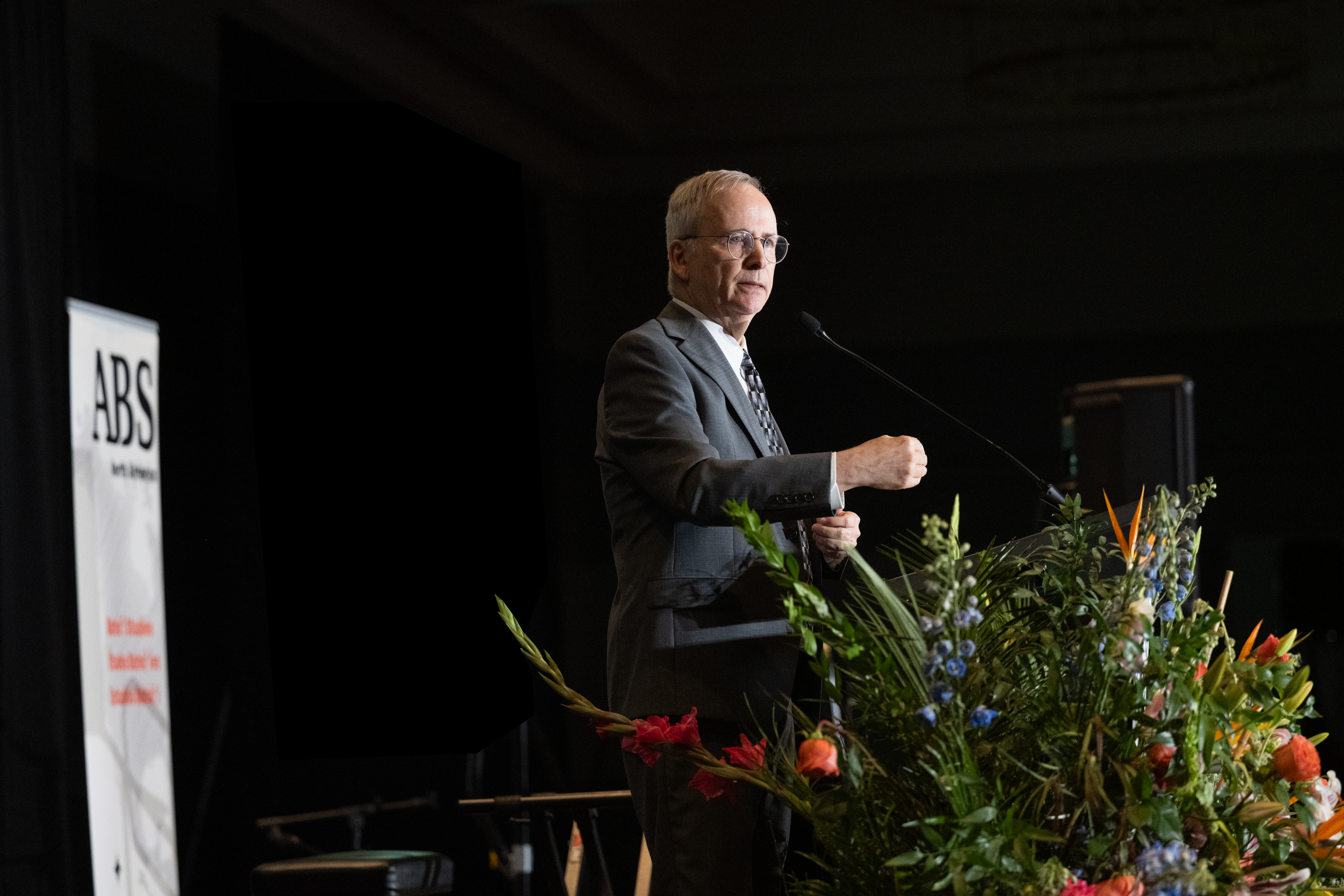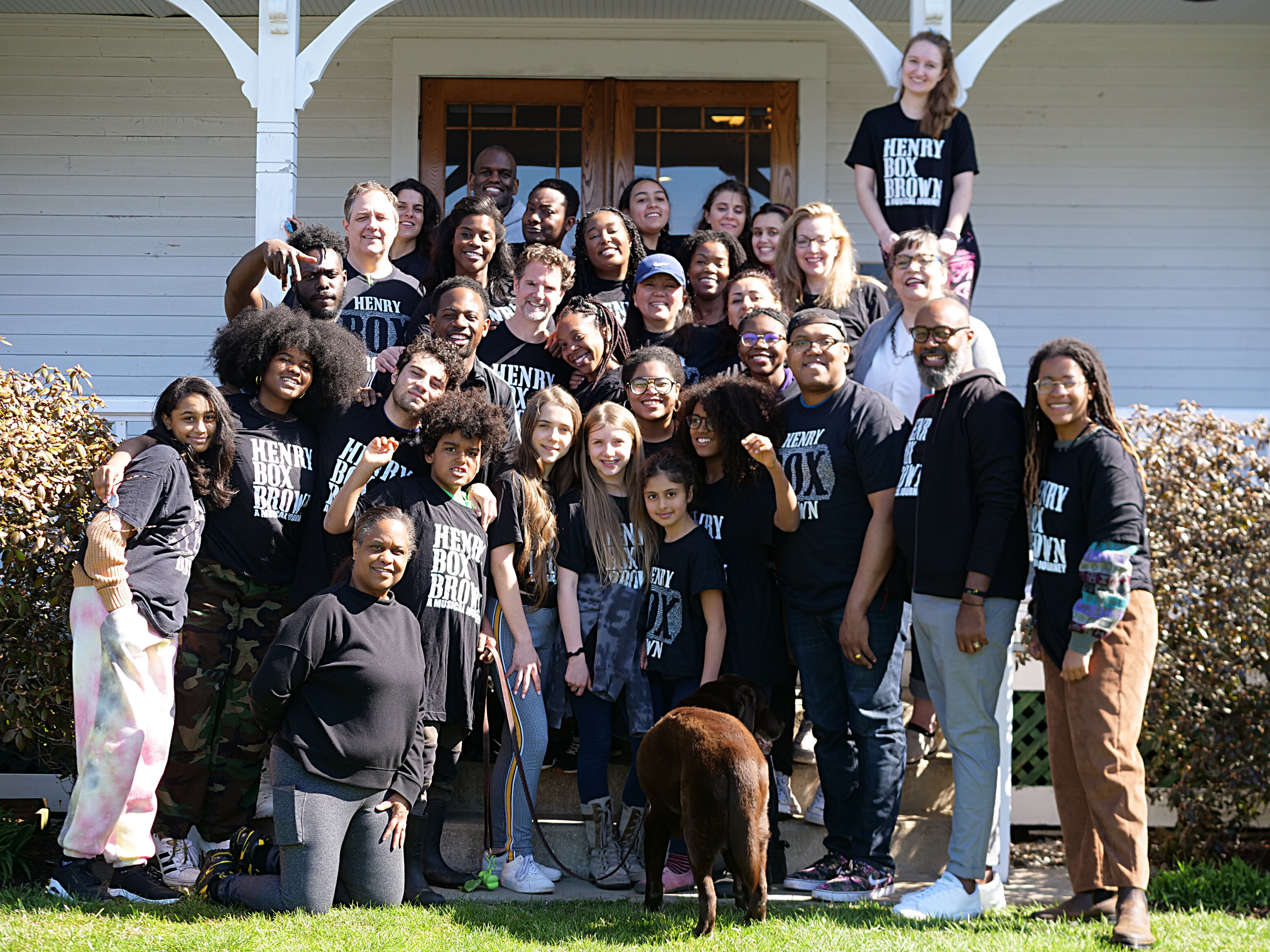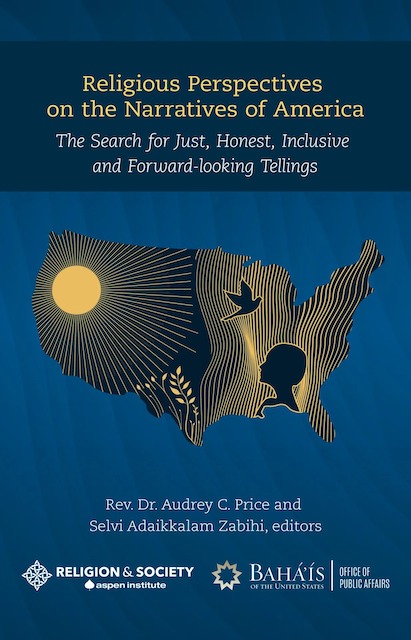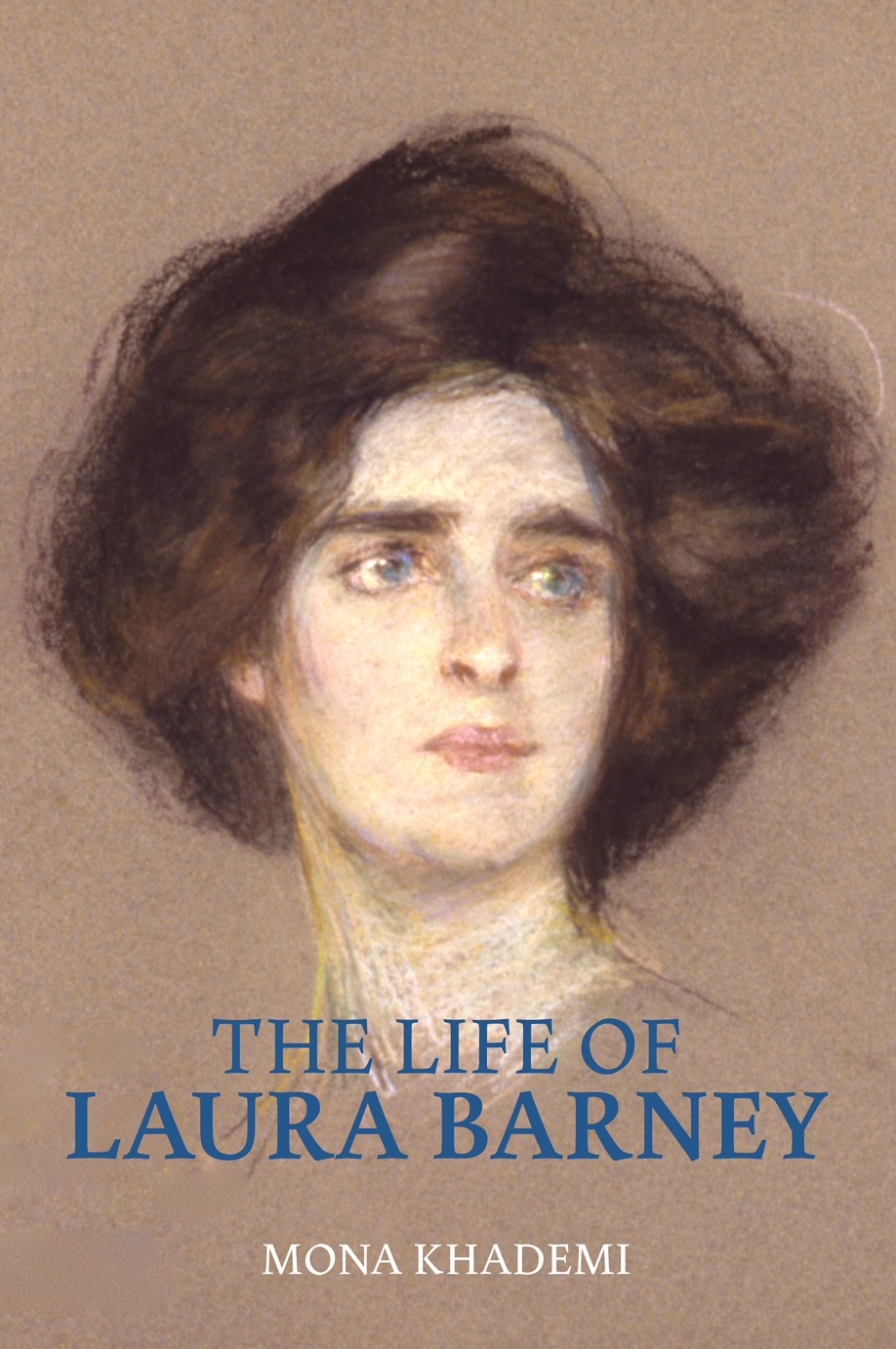
A Still More Superb Mission

In August, Paul Lample, a member of the Universal House of Justice, spoke in a plenary session at the Association of Bahá’í Studies conference in Atlanta. Here is an abridged transcript of that presentation.
A video recording of the entire talk is available.
“What I’m sharing with you tonight is not the position of any institution. It’s just my own insights and sharing it for the contribution to the consultation of the entire community as we begin to understand these things and work together within the framework for action.” – Paul Lample, August 3, 2024
I want to begin with a statement of Shoghi Effendi, in The Advent of Divine Justice. He was talking about the unfoldment of the Divine Plan and the role that the American Bahá’í community had to play as the chief executors, along with the co-executors of the national community in Canada. He said there was an international mission that had to be accomplished.
And who knows but that when this colossal task has been accomplished, a greater, a still more superb mission, incomparable in its splendor, and foreordained for them by Bahá’u’lláh, may not be thrust upon them? The glories of such a mission are of such dazzling splendor, the circumstances attending it so remote, and the contemporary events with the culmination of which it is so closely knit in such a state of flux that it would be premature to attempt at the present time any accurate delineation of its features. Suffice it to say that out of the turmoil and tribulations of these latter years, opportunities undreamt of will be born, and circumstances unpredictable created, that will enable, nay impel, the victorious prosecutors of ‘Abdu’l-Bahá’s Plan, to add, to the part they will play in the unrolling of the New World Order, fresh laurels to the crown of their servitude to the threshold of Bahá’u’lláh.”
This work, somehow mysteriously tied in with the mission of the American Bahá’í community and the destiny of the American nation that will lead to the changing circumstances, which in detail are not clear, but will open the door to the unrolling and ushering in of Bahá’u’lláh’s world order.
And Shoghi Effendi reminded us in The Advent of Divine Justice that this world order can never be reared “unless and until the generality of the people to which they belong has been already purged from the diverse ills, whether social or political, that now severely afflict it.”
And now we find ourselves almost back where we were at the start of World War I with nations fighting great power politics and the world dividing and fragmenting in these different ways. [There] is a breakdown in the understanding of where you find truth.
Suddenly humanity doesn’t trust expert opinion anymore. People don’t know how to disagree with one another without actually hating one another. There’s competing ideologies in politics, economics, about identity, about social theories, and so on. And people are losing faith in both science and in religion, as well.
We substitute ideology and then we go to war, one ideology against the other and try to impose it on each other. Another aspect of this is a breakdown in justice, where we don’t know what the proper relationships are between one another. So the relationships, with God, with ourselves, within families, within communities, within the larger society and between nations, all of these relationships are breaking down.
Also, there’s a breakdown in the understanding of what actually constitutes a good and meaningful life. And finally, [there’s] a breakdown in the shared idea of who we are and what story we’re a part of. What is the story of the human race?
If you look at this a little closer, you can see that the heart of the matter is people living according to certain patterns, which are explicitly called out by Bahá’u’lláh and ‘Abdu’l-Bahá about how we ought not to live.
For example, one of these things ‘Abdu’l-Bahá talks about [is that the] primary cause of oppression and injustice, of unrighteousness, irregularity, and disorder, is the lack of the people’s religious faith and the fact that they’re uneducated. And because of that, people can’t even articulate what their problems are, so they become objects upon which others act. And of course, people don’t uneducate themselves.
Detached from true knowledge of reality, they become attached to these different ideologies. Their passions can be directed and misdirected in different ways. There are also those people who exploit people and promote fanaticism and use [others] to acquire power.
And it’s very difficult not to be swept up by these forces. We have to remember who we’re supposed to be and the mission that we have to accomplish. It’s not about what we see in the world, taking sides and fighting it out. It’s not about hating the other people who don’t think like you do. Instead we have to tie ourselves to the covenant. [We have to] connect ourselves to the Divine Physician, recognize that He doeth what He willeth and then become the instruments for the dissemination of this divine remedy.
‘Abdu’l-Bahá warns us. He said we belong to the world of purity and are not content to live the life of the animal, spending your days in eating, drinking and sleeping. He said our ambitions should be to acquire human perfections and to bring about happiness for others.
‘Abdu’l-Bahá and Bahá’u’lláh tell us how we ought to live and how we ought to be. Bahá’u’lláh tells us that this delivery of the divine remedy is our mission. He explained,
“These are not days of prosperity and triumph. The whole of mankind is in the grip of manifold ills. Strive, therefore, to save its life through the wholesome medicine which the almighty hand of the unerring Physician hath prepared.”
He tells us how to seek the truth about reality through the knowledge systems of science and religion, and to be able to engage in a process of consultation, which is radically different from the way the world communicates in the one sense that, if you disagree with somebody, you can actually still like them.
And then, of course we live in this learning mode of continually seeking out the truth and testing it in reality and finding the solutions to human problems and then advancing to the next problem.
Another thing Bahá’u’lláh’s teachings explain to us is the nature of right relationships. When we go and pray every day and reflect on our own life, we bring those relationships into the harmony that we have with God. Then we work on the relationships in our family, and then on the relationships in our community, and then in our neighborhoods and clusters. Then finally begins the process of the right relationship with our nation and with the world. So, each individual then becomes the protagonist of making these proper relationships and gradually bringing balance and harmony back into the world.
I want to look at the question of the elimination of racial prejudice by bringing it within the context of the framework for action that is gradually unfolding in the work of community building and social and economic development and involvement in the discourse of society.
Think in terms of a scientific revolution. For centuries, millennia, the human race existed at a subsistence level. And then finally, there was a breakthrough in the human capacity to understand the material world and to translate those insights into technologies that could then begin to lift up and transform human wellbeing.
In the late 1800s more insights came and humanity was able to combine it in a way where science began to advance at an accelerated rate. Now think of what we’re doing here in learning how to translate Bahá’u’lláh’s teachings into reality and action in a systematic way. It’s like a parallel religious revolution. [It is] the scientific method of translating spiritual truths into practical action for the transformation of human lives and human society. This is at least as significant, if not more significant, than the scientific revolution.
The House of Justice gives us the guidance that we need to begin to act. And then we work on it, and then we discover things that prove to be effective. And those things that prove to be effective are disseminated. And then gradually a pattern develops that’s captured in future plans.
The question is, if the goal is to eliminate racial prejudice from the fabric of American society, what do we have to do to start? What can we add to this evolving framework for action so that instead of a whole bunch of diffused activities going on in the Bahá’í world, we can begin to build unity of thought and action? Now we can put it on a systematic course, where we make a beginning, and we don’t stop until the problem is eradicated from American society.
But then that takes a process of learning. So we begin with this evolving framework. What’s in that evolving framework? Well, everything from the programs of growth that we have, [and] institute courses, but then there’s other elements that we need to examine. At the beginning, our views, our actions, might be very wide. That’s fine because we have diversity of thought. We have diversity of experience.
So, one of the things dominating the perspective [of racism] is fair minded people recognize that race, as a biological reality or as a spiritual reality, doesn’t exist at all. It’s only a social construction. But what do you do about this social construction? Part of society keeps reconstructing it in a different form to maintain the racialized hierarchy. But others, who try to get rid of it, then are stuck.
There’s a kind of catch 22, in the current dilemma surrounding the question of racial identity in the United States. As a society, we can’t currently be one people who are colorblind and do not see race in a society where racism is a disruptive everyday force. But at the same time, if we crystallize race into fixed categories that we each inhabit, we inadvertently reinforce the contemporary racist system.
Ultimately is there a place where we can get to where this racialized system, racialized thinking of America doesn’t even exist anymore?
But now come the insights from the Revelation of Bahá’u’lláh that have to be added to our evolving framework for action, as well. Primarily, there’s the principle of the oneness of humanity, Bahá’u’lláh’s fundamental principle. Shoghi Effendi makes it clear, this is not a pious call for brotherhood.
Shoghi Effendi explains that this principle calls for the reconstruction and demilitarization of the whole civilized world. It represents the consummation of human evolution where this oneness that is true in spiritual and biological reality becomes oneness in the expression of social reality, as well.
[Another] principle is that, this oneness of humanity is expressed as unity and diversity. It’s not that we all become uniform. No, there’s still this great diversity among the peoples of the world. It’s just that after 400 years of thinking of a racialized hierarchy, it’s very difficult to think of diversity as anything else. Diversity existed before this thing existed, and it’ll exist after we get rid of it.
This unity and diversity–the diversity that we’ll create–is something that we can’t imagine. Something that goes back to, or even transcends the conceptions of the way human beings thought of themselves before.
Another aspect of the teachings of Bahá’u’lláh is that justice is manifested by these proper relationships. If we understand how Bahá’u’lláh is saying we should relate to God, we should relate to ourselves, we should relate to our family, if we build these right relationships, then the human race will begin to change and flourish. And these relationships depend on the expression of spiritual qualities.
We need spiritual love and heavenly harmony, perfect love, unity, and kindness, faith, assurance, extreme patience, true humility, consummate tact, sound initiative, mature wisdom, and deliberate, persistent and prayerful effort.
And the Guardian and the House of Justice point us to the example of ‘Abdu’l-Bahá and say that we have to emulate the way He acted if we’re going to see this change. “Tactful and wise in His approach. penetrating in utterance, indiscriminating in fellowship, unfailing in sympathy for the down- trodden, courageous in conduct, persevering in action, imperturbable in the face of tests, unwavering in His keen sense of justice.” These are the qualities we need to emulate.
Also, there’s a breakdown in the understanding of what actually constitutes a good and meaningful life. And finally,
Then the question becomes, whose job is it to clean up this mess? In the wider society, well, it’s Black people’s responsibility. No, it’s white people’s responsibility. The Bahá’í Writings make clear: it’s both’s responsibility.
“Strive earnestly,” Abdu’l-Bahá exhorts both races, “and put forth your greatest endeavor toward the accomplishment of this fellowship and the cementing of this bond of brotherhood between you. Such an attainment is not possible without will and effort on the part of each; from one, expressions of gratitude and appreciation; from the other, kindliness and recognition of equality. Each one should endeavor to develop and assist the other toward mutual advancement.…”
And our goal also is clear from the writings. Bahá’u’lláh wrote, “Close your eyes to racial differences and welcome all with the light of oneness.”
God, ‘Abdu’l-Bahá said, makes no distinction between the white and the Black. God did not make these divisions, He affirmed. These divisions have had their origin in man himself.
“Therefore, as they are against the plan and purpose of reality, they are false and imaginary.
“Strive jointly to make extraordinary progress and mix together completely.”
“I pray that you attain to such degree of good character and behavior that the names of Black and white shall vanish. All shall be called human.”
Are we affected by racism? Of course we are. We live in a racialized society. We can’t imagine that we live in a mud puddle, but somehow we escape from being dirty. No.
What is our aim? The complete elimination of racial prejudice from American society. There will be unity and diversity, but not in this racialized way. And even if we can’t imagine what it will be, that’s the aim that we’re going toward and we’ll find it when we get there.
Now, how do we get there? Actually, where we stand, we don’t know how we get there. We have to set in motion a systematic process of learning and we begin where we begin. Whatever our diverse range of understanding, whatever our diverse range of action, but then gradually over time we systematize thought and action. We prove through experience what works and then we disseminate that thing that works more widely. We don’t have to get trapped in ideas of the past. We don’t have to get trapped in these false dichotomies, even of sincere people who don’t know their way out.
We have to find the way out and work with them to draw the insights from the best of thinkers, but then put in motion a process illumined by the Revelation to begin to lead us out of this place where we’re stuck. The way to do this is through the framework of the Plan that’s in action.
When Shoghi Effendi wrote The Advent of Divine Justice, he said, you’re too small to have an effect on the wider society, so you should begin by working on yourself, to prepare yourself for that day when you’ll be called upon to eradicate these evil tendencies from the wider society.
He said turn to the spaces that you have. He said freedom from racial prejudice should be consistently demonstrated in every phase of our activity in the Bahá’í community.
Individually as well as in their official capacity, as organized groups, committees, and assemblies. It should be deliberately cultivated. Whether in their homes, their business offices, their schools, their colleges, their social parties, their recreational grounds, their Bahá’í meetings, their conferences, their conventions, their summer schools, their Assemblies.
So, all the spaces we had, we were supposed to make the oneness of humanity in those spaces. We were supposed to make interracial fellowship in those spaces. We did it to whatever degree we did it, to whatever degree we failed. But here’s where we are right now. Now the House of Justice says, all right, our ability to make spaces has been vastly changed and it’s broad enough to reach outwardly, to encompass others in these spaces. There are the spaces for community building, for social action, for involvement in the discourses of society, for building the intellectual life of the Bahá’í community. And it said the time to build it is now.
Now we have to take and work in all the spaces where we inhabit and the spaces that we can create and the spaces that we can make bigger and bigger. So, yes, a first milestone cluster, ten people, but make that a reality in that space. Then a third milestone cluster, a thousand people, or more, or tens of thousands, or twenty thousand, or learn to make that fifty thousand, or a hundred thousand, and in that space create the oneness of humanity.
That doesn’t mean that when we create these spaces, that there aren’t also some spaces where we’re directly attacking the problem of race. It’s not one or the other. It’s not like we can solve the problem of race and then we can advance the Divine Plan. It’s this thing that Shoghi Effendi said about the inner and outer life of people. It’s like the debate we had: you can’t teach until you manifest all the Bahá’í qualities, but you can’t manifest all the Bahá’í qualities until you teach. So, the inner and outer life of humanity is reciprocal on one another. We have to act. We’re building the oneness of humanity. That’s knocking down the racialized system. These spaces are the haven that the House of Justice is calling for.
Now all this process, it’s not just a matter of doing random activities in random spaces. We have to add a learning dimension to it. [We] do a lot of different things, and then see what proves to be effective. And then gravitate towards those things that prove to be effective over time. That’s the learning process. So, it’s not just everybody do what you want. At the beginning, it might be very diverse things because we don’t know what to do. So do different kinds of things. But we can’t impose our view, like, I think a certain thing should be done, therefore everybody else should do what I think.
No. I should go do it. And then I prove it’s effective. If I prove it’s effective, everybody’s going to come and visit me and come see what I’m doing. So, it allows, at the beginning, where we don’t know what to do, diversity of action. And then when it proves to be effective over time, then our thoughts start to crystallize.
However long it takes–10 years, 20 years, 100 years if necessary–until we start figuring this out, and then we move to the next thing, and then we move to the next thing until we can finally eradicate this problem from our society.
We all have the power to step into the field of action. Shoghi Effendi says, if we’re going to establish justice in the world, we might have to endure injustice. But what each Bahá’í has to do is what’s right. It’s not about telling others what to do. It’s you doing what’s right yourself. And then we don’t have to wait for others to come along with us. We can find the space and do it. And if our Bahá’í friends are doing something else, we can do it with people from the wider society. But there’s no criticism of others. So critical thinking about how to do better, yes, but not criticism.
We’re supposed to have a sin covering eye toward others, but [we] ourselves do what’s right. And by doing what’s right, we’ll attract others to those things that are effective and that are right. And then those proven activities will be disseminated by the institutions and gradually we’ll all move toward those effective aims.
So, our job is a spiritual revival. This greater mission centers around being a leaven that helps unite people in a common vision and a shared identity to overcome these evil tendencies and create a spiritually illumined, united, and flourishing people that can fulfill its destiny on the world stage and usher in the Lesser Peace.
Shoghi Effendi, writing in 1938 about the execution of the first stage of the Divine Plan, said much will depend upon the spirit and manner in which the task will be conducted.
“Through the clearness and steadiness of their vision, through the unvitiated vitality of their belief, through the incorruptibility of their character, through the adamantine force of their resolve, the matchless superiority of their aims and purpose, and the unsurpassed range of their accomplishments, they who labor for the glory of the Most Great Name … can best demonstrate to the visionless, faithless, and restless society to which they belong their power to proffer a haven of refuge to its members in the hour of their realized doom.”
“Then and only then will this tender sapling, embedded in the fertile soil of a Divinely appointed Administrative Order, and energized by the dynamic processes of its institutions, yield its richest and destined fruit.”





